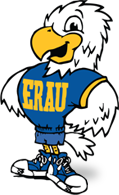One semester down, a lot more to go! And I’m still just as excited and enthusiastic to fly as I was from day one. Sure last semester had its ups and downs, but that comes with any new job in the aviation industry. And you know what keeps me going, the students! Once you realize that, you begin to really love your job. It’s not about the flying, it’s about the dedicated men and women in the cockpit that I am mentoring. I could not be more proud to say that I am part of this organization. Watching your student solo for the first time draws emotion that is usually reserved for parents watching their children accomplish a major milestone in their life. All at once, you are nervous, anxious, and proud. Overall, this semester has started off better than the last. However, 2 months ago, it didn’t appear that this was going to be the case.
On 25 December, 2006, I was home in New Jersey with my family. It was good to be home because I haven’t seen them in about a year. I was on my way out when one of my friends called me and told me that a tornado had hit the campus. Not really thinking there was that much damage, I asked him a few questions, but didn’t really pay too much attention to the topic. Then, one by one, over a 1 hour time span, my students called me to ask me questions about the damage. I finally got on the Internet and began looking at pictures that my friends had put online. The damage was the type of damage you normally see on the news in Iraq. Most of our fleet of airplanes were damaged or destroyed. Aircraft were thrown all over the west side of campus. We no longer had a maintenance hanger. The Simulation Center, Spruance Hall, the ICI Center, the maintenance student’s classrooms, Natalie Irrlitz and Michael Ponso’s cars, were all severely damaged. Not to mention broken windows in the College of Aviation, the Flight Line, and the Student Center. After seeing this damage, I began to worry, will I have a job? What’s going to happen to the students? Was anyone hurt? Thank God no one was hurt. If this had happened 10 days earlier there would have been fatalities.
What followed the tornados was, in my opinion, the greatest single recovery effort ever undertaken by a university. The upper level administration in the flight department were all on scene within a few hours of the tornado. Before the word was given for instructors to return to school, pilots were already cutting their vacations short and returning to Daytona to help. I was not planning on returning until January 8th. Instead, I left my ski trip in the Poconos, and my girlfriend, to get to work by January 3rd. The pure grit and determination by the flight department was something that I envy as a soldier in the Army. Aircraft were located from around the U.S. to replace the ones we lost. Within a few days, instructors were on their way to places as far away as Arizona and North Dakota, to pick up replacement aircraft. I was tasked to go pick up an airplane on the west coast of Florida.
By January 16th the Flight Line was up and running at full strength and classes began. Twenty-one days prior, there were less than a dozen flyable airplanes, nowhere to conduct aircraft maintenance, and no building to have simulator training in. The tireless efforts of the ERAU flight, safety, and maintenance departments did an outstanding job in recovering from this disaster. The overwhelming support the University received will never be forgotten. As I said in the beginning, I could not be more proud to be a part of this organization!


